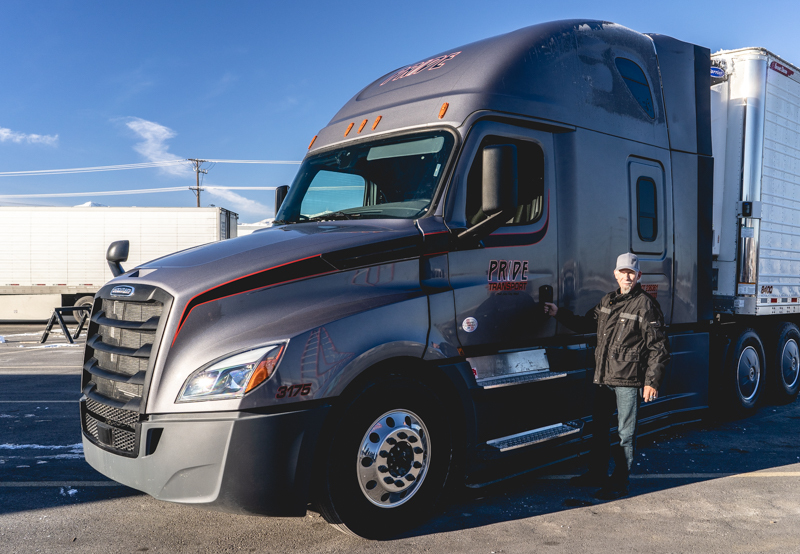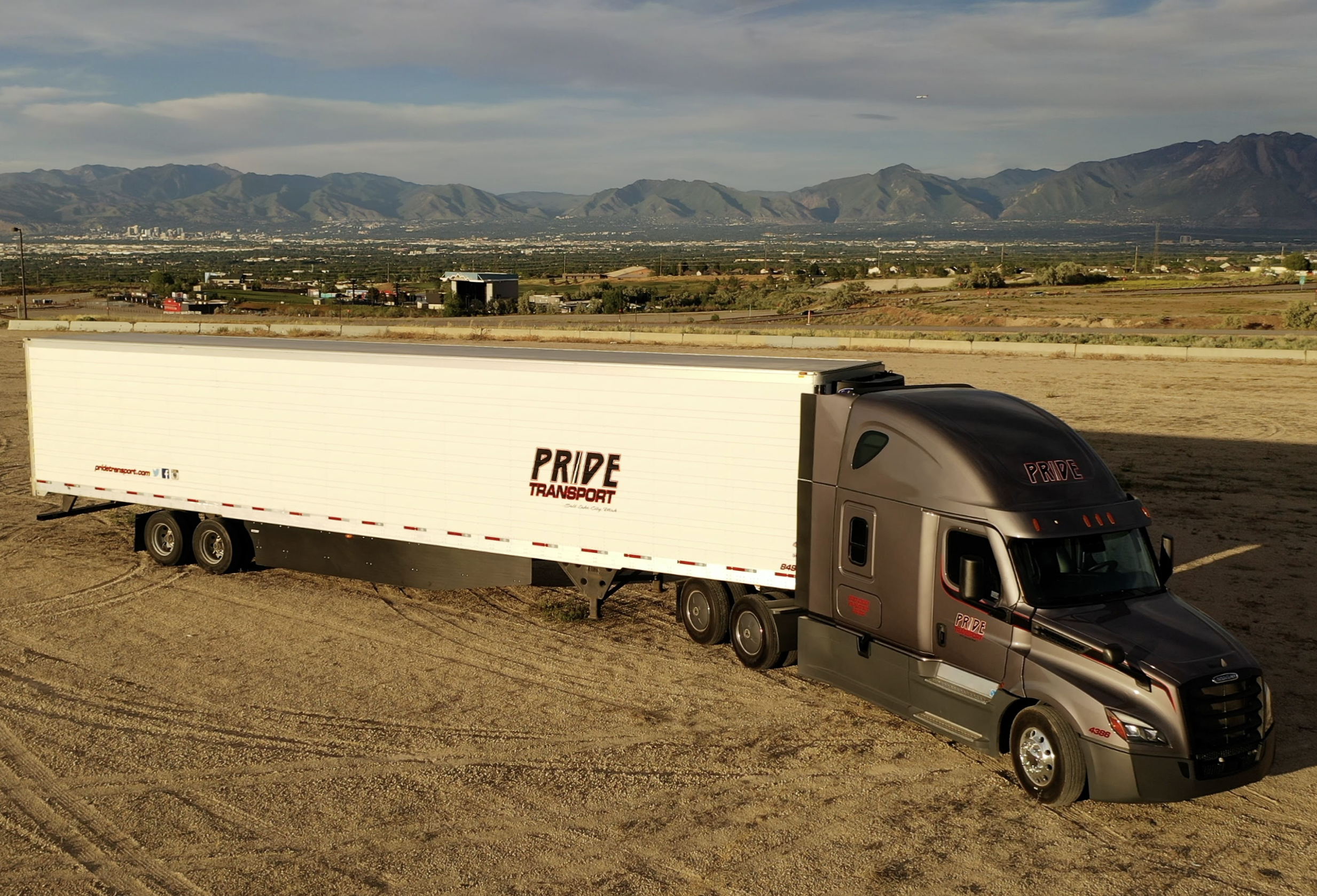by Pride Transport | Jul 11, 2023
Not all truck drivers are in it for the long haul — and by that, we mean long-haul routes. While over-the-road driving has plenty of unique benefits, some people prefer the familiarity and routine that comes with local driving. Local routes keep drivers closer to home on a more traditional work schedule while offering variety in completely different ways than regional or OTR driving can.
If you’ve been wondering if it’s worth being a local truck driver, we’re here with some guidance. Keep reading to learn more about the advantages and disadvantages of local driving to see if it’s the right choice for you.
What to Expect as a Local Driver
First, let’s get clear on what, exactly, local driving jobs look like.
Local truck drivers have specific routes to complete on a daily basis and typically stop at the same locations on every outing. Local drivers usually travel within a 100-mile radius of their starting location and don’t cross state lines in their daily routine. This type of driver plays a vital role in the “last mile” of the supply chain, often navigating complex logistics to complete their deliveries safely and on time.
Driving closer to home means that local drivers travel on two-lane roads or narrower streets through city centers. They might not cover as many miles as regional or OTR drivers, but they still spend a good amount of time driving because they’re driving at slower speeds through more traffic as they get closer to their destination. Local drivers often make multiple stops on their route and help to load and unload cargo upon arrival.
Even though they cover a smaller geographic area, local drivers (sometimes called interstate drivers) must have a CDL and appropriate training — after all, they’re usually driving box trucks or similar vehicles that require specific licensure. Just like OTR and regional drivers, local drivers need to understand and follow all traffic laws and any regulations that apply to their role as a driver.
What Is Vocational Driving?
It’s easy to confuse local driving and vocational driving, since both apply to driving in smaller, localized areas. Vocational drivers are people who operate vehicles specific to one type of job (think garbage trucks, dump trucks, concrete trucks, etc.).

Pros of Being a Local Driver
Every type of truck driving has its ups and downs, and local driving is no different. Being a local driver comes with some clear advantages for the right person, but is it worth it?
More Time to Spend at Home
A lot of jobs require being away from home during the day, but regional and OTR truck driving requires being on the road for days (or sometimes weeks) at a time. With local driving, drivers complete their routes during a standard work day and return home every evening. The set hours and steady routine of local driving might appeal to people who value regularly spending time with family or who want to have time for other activities and hobbies.
Potential for Weekends Off
Speaking of spending more time at home, local driving offers the added benefit of free weekends. Some local driving jobs might require truck drivers to start their routes extremely early in the morning or get home late, leaving little time to spend with loved ones. In these instances, having free weekends gives you the chance to keep in touch with family and friends or plan fun and interesting outings.
Better Work/Life Balance
Local routes can be completed in the span of a day, so drivers can be home at night instead of logging miles. And because local drivers cover the same route every day, they become more familiar with the territory and find shortcuts or workarounds to avoid heavy traffic or tricky roads and intersections.
The routine of local driving creates daily structure, which is important for drivers who want to maintain a regular diet, exercise, or sleep routine. Less time in the truck means more time to focus on other areas of life that matter to individual drivers.
Variety of Tasks
A big part of any truck-driving job is actually driving the truck, but it’s not the only responsibility. This is especially true for local drivers, who often help with loading and unloading goods during their deliveries. Regular stops and assisting with inventory can help break up the monotony of driving and give drivers a reason to stretch their legs.
Cons of Being a Local Driver
Just like almost any other job, local driving has its drawbacks. Truck drivers need to look at both sides of this type of position to decide if it’s worth being a local truck driver for them.
There’s Substantial Interest in Local Truck Driving…
…and where there’s interest, there’s competition. Despite the potential for less pay than other types of driving (more on this in a moment), local driving is still pretty popular, which means companies can be more selective about who qualifies as a local driver. Truck drivers with more experience and better driving skills and/or records have a stronger chance at securing local driving jobs.
Lower Pay
The trucking industry uses cents per mile (CPM) to determine driver pay, so regional and OTR drivers earn more than local drivers because they cover significantly more miles. Benefits packages might also include more perks (or a wider variety of perks) for OTR and regional driving positions to make up for the lack of off-duty time that local drivers typically receive.
Limited Travel Opportunities
OTR drivers get to experience new sights all the time while traveling from state to state en route to their destination. They can visit new places and try local foods — all while on the job! Local driving doesn’t offer as much variety; some drivers even have the exact same route every day. If the thrill of the road and opportunities for adventure are what drew you to truck driving, then local positions might not be what you’re looking for.
More Physical Labor
Load the truck, get in, start driving, stop driving, unload the truck, get in, start, stop, unload…local driving keeps you moving, and not just in terms of traveling from Point A to Point B. Local drivers more often help with moving inventory onto and off of their trucks, whereas regional and OTR drivers usually arrive to find loading docks ready and waiting for them. Another thing to consider with local driving: Not every stop on your route will have ideal loading and unloading spaces, which can make delivering inventory a potentially frustrating activity.
Is it Worth Being a Local Truck Driver?
Local truck driving comes with its own unique set of benefits and drawbacks. Ultimately, the decision is a personal preference for each driver. What does a driver value more? A more traditional work schedule and familiar route or the freedom of the open road and the opportunity to earn more income, the choice is up to you.
—
What makes truck driving such an interesting career is the variety of opportunities. Whether you’re interested in being a local, regional, or OTR driver, driving solo or as part of a team, there are options in the industry to match your interests. Check out some of our driver job openings at Pride and discover the right fit for you!